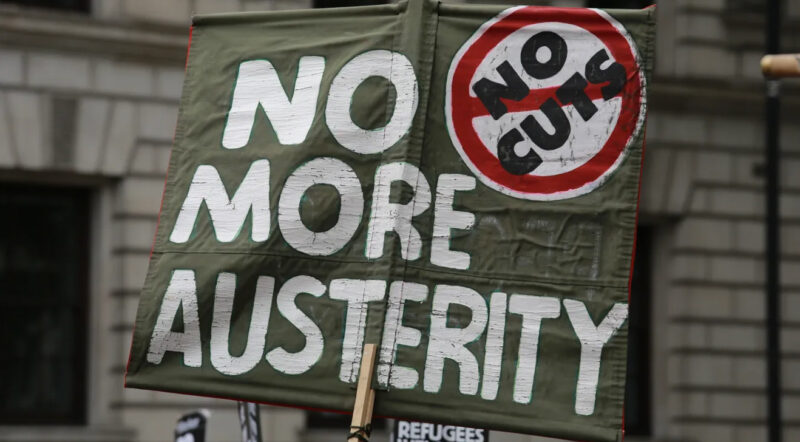Countdown to Royal Mail privatisation begins
On 21 March the European Commission, in charge of regulating competition, approved the Coalition government’s plan to take on the Royal Mail pension scheme, relieving the company of the burden of its £8.4 billion deficit, writes Andy Yorke. While the CWU has long argued for the government to take on the pension scheme the government’s reasons for doing so have little to do with concern for the workers.Both the Tories and New Labour have said they would only ever take this step as a prelude to privatisation. If the massive hike in stamp prices and the huge programme of closures that is making millions in real estate sales are also taken into account then it is obvious that privatisation is the goal.
The government has used the pension deficit as a stick to beat the company, demanding cuts to postal workers jobs and conditions to set it right. Lib Dem Postal Affairs Minister Norman Lamb applauded the decision as a “fundamental step” towards privatisation. In reality the roots of the deficit lie not in postal workers’ gold-plated pensions but in a thirteen-year contributions holiday Royal Mail managers and the government took in the 1990s.
The government’s taking on the pension scheme is not an example of generosity but a neoliberal policy to “nationalise the debts, and privatise the profits”, similar to the pro-business nationalisations of Northern Rock and other banks.
It is also a numbers game for Tory Chancellor George Osborne. Government accounting rules mean that the Tories can count the £28 billion in pension assets immediately on the balance sheet, while the deficit will only come on stream in the future as retired workers draw on their pensions. The government has hired consultancy analysts to sell the pension scheme’s assets and use the £28 billion windfall to pay off government debt.
Pile up cash to privatise
It was widely recognised that in its “present state”, i.e. with a huge pensions liability around its neck, no private company would touch Royal Mail with a barge pole. Besides removing that, the company’s pro-privatisation bosses have embarked on a crash course of asset-stripping and price-hiking in order to pile up cash to tempt a private company.
A massive mail-centre closure programme, agreed by the union in the 2010 Business Transformation agreement, along with a recently announced (and un-agreed) plan to close scores of delivery offices will bring in millions in real estate sales. Added to the Group’s operating profit of £67 million last year, it all adds up to a tidy sum.
The aim is for a sell-off by Autumn 2013, the biggest since the sale of British Rail in the 1990s and, like that privatisation, will most
likely involve offering some shares to the public to defuse popular opposition to the plans.
For years government-appointed regulators have battered the publicly owned company, allowing private companies like TNT to steal big business contracts from Royal Mail and use them as an artificially cheap delivery option. Now that Royal Mail is up for privatisation these same regulators are all up for price hikes to be paid for by the public, not big business, which will get discounts of up to 38 percent off of stamps.
Only days after the EC announcement, the regulator Ofcom agreed to massive hikes in the price of stamps by Royal Mail and, at the end of March, the separation of the popular Post Office Ltd and Royal Mail was completed to allow the privatisation of the potentially lucrative delivery network.
These hikes will hit poor people the hardest, with second-class stamps going up from 36p to 50p, and first class up to 60p. Royal Mail CEO Moya Greene has refused to rule out the possibility of a £1 stamp. The consumer website uSwitch has warned, “First-class post is going to become uneconomic. For most people it will be the writing on the wall for the services we have had. If first-class virtually disappears, then next day delivery will disappear and all of us will have a second class postal service.” Small business groups and Age UK have also condemned the price hikes.
The postal service is being sabotaged in order to make it serve the big banks, industrial monopolies, and a future private owner. The result will be a poorer, more expensive service and job losses, all for the benefit of private companies – TNT has said it will trial delivering mail for the first time in London.
As postal workers we have no interest in seeing Royal Mail sold off to the likes of TNT the banks or slash-and-burn private equity firms run by secretive millionaires. Such a sell off will probably mean an all-out attack on our wages, conditions, and union rights, with the real possibility of compulsory redundancies.
The CWU leadership condemns privatisation but has no plans to fight it, only contemplating strike action in the case of changes to conditions due to privatisation, but not against privatisation itself.
If postal workers demand a fight back against further closures and job losses in the months ahead, it could lay the basis for a strike against privatisation itself in the coming year, defending a full-publicly owned postal service for all.






